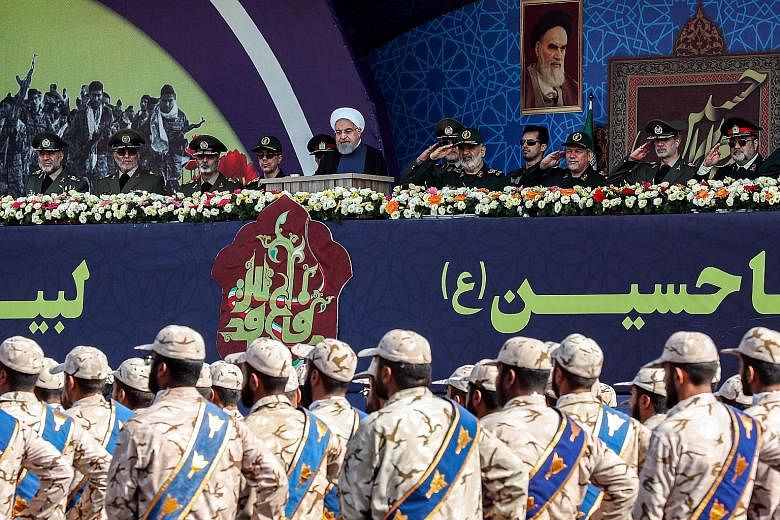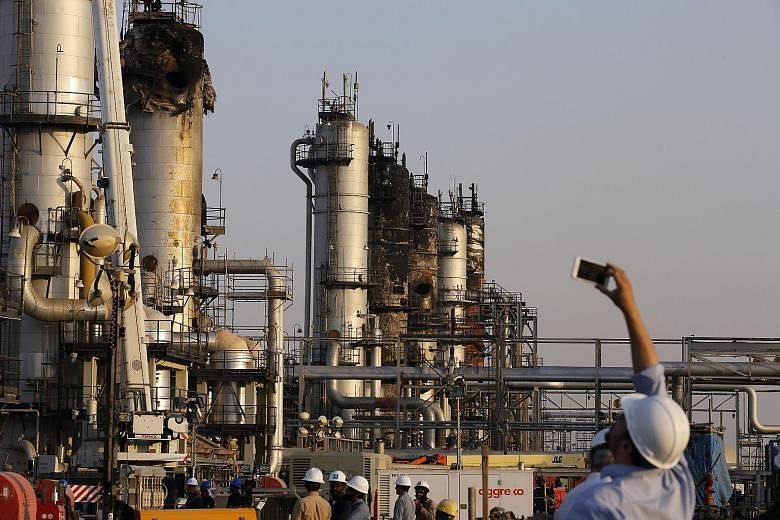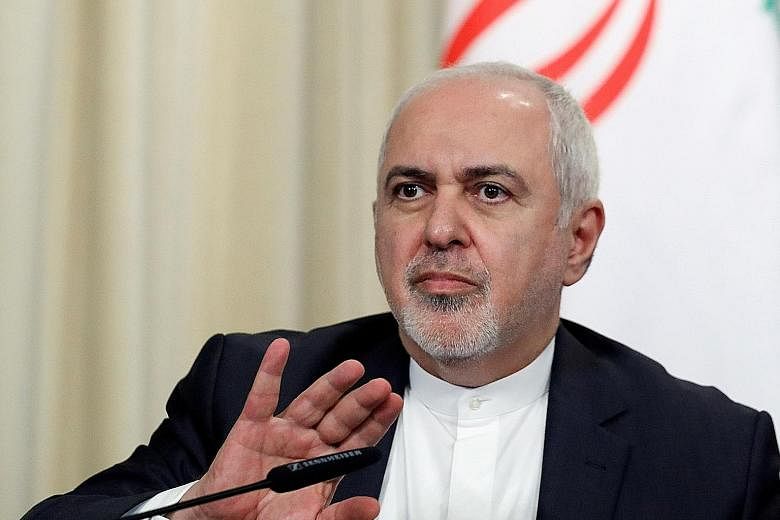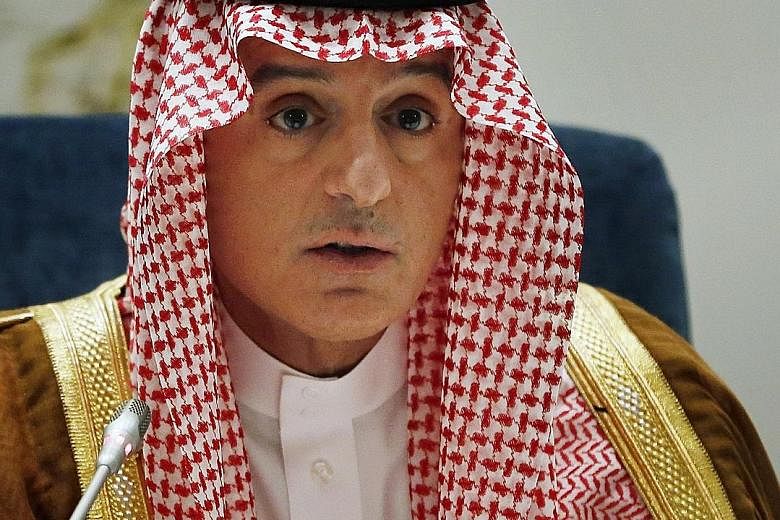GENEVA • Iran will not allow anyone to violate its borders, President Hassan Rouhani said yesterday at a ceremony in Teheran commemorating the anniversary of the start of the Islamic Republic's 1980-1988 war with Iraq.
"We are not someone who will violate the borders of others just as we will not allow anyone to violate our borders," Mr Rouhani said, according to his website.
Mr Rouhani added that he will offer a regional peace plan during his visit to the UN this week.
"This year we will present a plan to the world at the United Nations that the Islamic Republic of Iran in cooperation with the countries of the region can create security for the Persian Gulf and the Oman Sea with the help of the countries of the region," he said on the website, without providing further details.
Separately, Mr Rouhani said in a speech broadcast live on TV that the presence of foreign forces in the Gulf creates insecurity for the region and the oil industry.
Iran has long sought the withdrawal of American and other Western forces from Arab Gulf countries, seeing them as a potential threat to the Persian nation.
Mr Rouhani said Iran extends its "hand of friendship and brotherhood" towards regional nations for overseeing security in the Persian Gulf and its narrowest point, the Strait of Hormuz, where one-fifth of global oil exports passes.
The US says Iran is behind a series of attacks on the region's energy infrastructure, including a major drone-and-missile hit on Saudi Arabia's oil industry earlier this month that shook global energy markets. Houthi rebels fighting a Saudi-led coalition in Yemen had taken credit for the attack.
Iran has denied the allegations and said any retaliatory strikes from the US or Saudi Arabia will lead to "all-out war".
Along with boosting troop and equipment levels in Saudi Arabia and the United Arab Emirates, the US is leading a maritime coalition, which includes the UAE, Saudi Arabia, Bahrain, Britain and Australia, to secure the area's waterways and vital oil trade routes.
Yesterday's military parade in Teheran marked the 39th anniversary of the start of the eight-year war with Iraq that began when Saddam Hussein invaded Iran in 1980.
Iran displayed the Khordad-3 air defence system that shot down a US drone in June. It also showed an Iranian medium-range missile that can travel up to 2,000km, putting it in range of its arch-enemy Israel and US bases in the region.
Similar parades were held in cities and towns across Iran, including the port city of Bandar Abbas near the Strait of Hormuz.
The chief of the powerful Revolutionary Guard, General Hossein Salami, had, the day before, threatened the "destruction of any aggressor" against Iran.
Fears of a wider regional conflagration have grown as tensions between Iran and the US increase.
Separately, Iranian Foreign Minister Mohammad Javad Zarif has refused to rule out military conflict in the Middle East after the US sent more troops and weapons to Saudi Arabia in response to the attack on Saudi oil fields.
"I'm not confident we can avoid a war," Mr Zarif said in an interview with CBS in New York that was broadcast yesterday on its Face the Nation programme.
"I'm confident that we will not start one, but I'm confident that whoever starts one will not be the one who finishes it."
When asked to elaborate, Mr Zarif said: "That means that there won't be a limited war."
Mr Zarif, who is in New York to attend the United Nations General Assembly session, said he was "confident that Iran did not play a role" in the attack on Saudi oil facilities.
Anybody who "conducts an impartial investigation will reach that conclusion", he added.
Meanwhile, US President Donald Trump yesterday said he has no intention of meeting Iranian officials on the sidelines of the UN General Assembly.
"Nothing is ever off the table, but I have no intention of meeting with Iran," Mr Trump said as he was leaving Washington for Texas, adding that he remained "flexible".
And Secretary of State Mike Pompeo said the US aims to avoid war with Iran, adding that the additional troops ordered to be deployed in the Gulf region are for "deterrence and defence".
Mr Pompeo told Fox News Sunday that he was confident Mr Trump would take action if such deterrence measures fail, and this was well understood by the Iranian leadership.
"Our mission set is to avoid war," Mr Pompeo said. "You saw what (Defence Secretary Mark) Esper announced on Friday, we are putting additional forces in the region for the purpose of deterrence and defence," he said.
REUTERS, ASSOCIATED PRESS, BLOOMBERG, DPA




